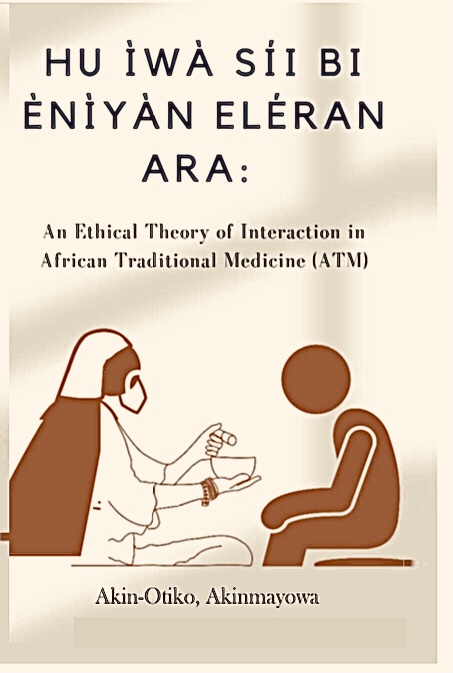
Hu ìwà síi bi Ènìyàn ẹlẹ́ran ara (Act towards them as Human being with flesh): An Ethical Theory of Interaction in African Traditional Medicine (ATM) PDF
Preview Hu ìwà síi bi Ènìyàn ẹlẹ́ran ara (Act towards them as Human being with flesh): An Ethical Theory of Interaction in African Traditional Medicine (ATM)
0cm;margin-left:142.45pt;margin-bottom:.0001pt;text-align:justify">
mso-bidi-font-size:11.0pt" lang="EN-US">Hu ìwà síi bi Ènìyàn
-.05pt"> ẹléṛan ara (Act
towards them as Human beings with flesh): An
Ethical Theory of Interaction in African Traditional
-.5pt"> Medicine (ATM) is
-.5pt"> a book that can be described as a
trailblazer in developing
-.45pt"> the field of bioethics. The book clearly reemphasizes the need to have
discussion in the field of bioethics, particularly for African contexts. The indigenous African title of this book, Hu
ìwà síi bi Ènìyàn ẹlé ran ara
ara: An Ethical Theory of
Interaction in African Traditional Medicine (ATM), which has been
translated as: ‘Act towards them as Human
beings with flesh’
shows a novel and conscious return to African thoughts,
this time not just for the sake of returning to African thoughts, but to engage
thinkers in ethics and bioethics.
11.5pt;mso-bidi-font-size:12.0pt" lang="EN-US">
11.5pt;mso-bidi-font-size:12.0pt" lang="EN-US">The method used in this book
lends credence to the aim, which is to develop an ethical theory of interaction
in African Traditional Medicine (ATM), useable in bioethical discourses. The
field of bioethics appreciates contexts, which makes the scope of the book very
-.25pt"> interesting. The book
draws attention to an area that many researchers have not paid attention to,
either because they do not believe that it is worth the effort, or they simply
do not find it comparable to western practices. The interface between the
practitioners of African Traditional Medicine and their patients’ needs a lot
of study because of the high patronage
-.75pt"> of traditional care around the globe, especially
-.75pt"> in the face of the new normal the whole world is experiencing.
-.6pt"> The World Health Organization
-.65pt"> has noted that traditional health
care is the most available in many parts of the world and can no longer
be discredited as ineffective.
0cm;margin-left:142.45pt;margin-bottom:.0001pt;text-align:justify">The author of this book has been engaged in various research
in the
.15pt"> field of African Traditional medicine, and this book is a
mso-font-width:95%">good way to engage
students and researchers
-.25pt"> in the field
of bioethics. It is
interesting that the author has not claimed to respond to all the bioethical
concerns, he says this book should open further discussion, and that much, the
book has achieved. This book is coming at a time when the curriculum of
bioethics is evolving and the need to pay attention
to theories from the Global South is increasing.
